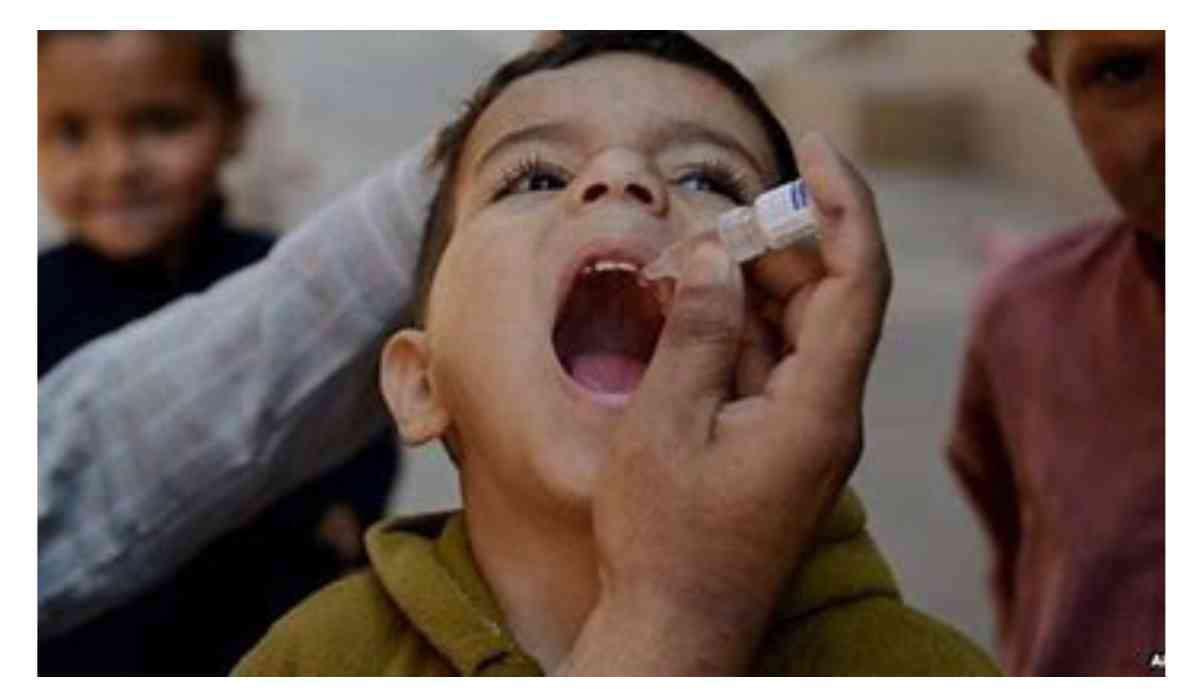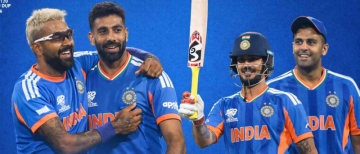In light of the persistent conflict and humanitarian issues, the United Nations Children’s Fund (UNICEF) and the World Health Organisation (WHO) have reiterated their dedication to large-scale polio vaccination initiatives in the Gaza Strip. These initiatives are vital to avert the re-emergence of poliovirus, particularly among children under the age of ten. The unstable security environment, along with infrastructural difficulties, has required innovative approaches to ensure that vaccines reach the most at-risk populations.
Background: Polio in Areas of Conflict
Poliomyelitis is a highly contagious viral illness that predominantly impacts children under five. Although global eradication efforts have led to a significant decline in polio cases, areas affected by conflict continue to be prone to outbreaks due to interrupted healthcare services, widespread displacement, and poor sanitation. In 2023, among the 21 countries facing polio, 15 were located in fragile or conflict-impacted regions, including Afghanistan, the Democratic Republic of Congo, Somalia, South Sudan, and Yemen. In Sudan, the national childhood vaccination rate dropped from 85% prior to the conflict to 53% in 2023, with some active conflict areas reporting coverage as low as 30%.
Polio Vaccination Initiatives in Gaza
The Gaza Strip, characterised by its high population density and ongoing conflict, poses distinct challenges for public health efforts. In September 2024, an emergency vaccination drive was initiated, targeting around 560,000 children under ten. Over the course of 12 days, the campaign successfully administered the novel oral polio vaccine type 2 (nOPV2) to 558,963 children, thanks to careful planning and coordination.
The rise in violence during October 2024 resulted in the delay of the third phase of the vaccination campaign. The escalating conflict, severe bombardments, mass displacement orders, and the absence of guaranteed humanitarian pauses throughout much of northern Gaza made it unfeasible for families to safely take their children for vaccinations, as well as for vaccination teams to carry out their responsibilities.
Resumption Amid Ceasefire
A ceasefire that began on January 19, 2025, has created an opportunity to restart vaccination initiatives. The WHO has announced that a large-scale polio vaccination campaign will begin again in Gaza on February 22, 2025. This effort aims to immunize over half a million children, responding to the increased risk of poliovirus transmission due to overcrowding in shelters and inadequate water sanitation. The ceasefire has facilitated greater movement of the population, which heightens the risk of virus spread. Alarmingly, six positive poliovirus samples were identified in December 2024 and January 2025, highlighting the critical nature of the situation.
Challenges and Adaptive Strategies
Even in a relatively stable environment, numerous challenges continue to exist. While access for health workers has improved since the ceasefire, certain regions remain inaccessible. Around 7,000 children in Jabalia, Beit Lahiya, and Beit Hanoun have missed their vaccinations due to previous conflicts. To tackle these issues, UNICEF and WHO have adopted several adaptive strategies, including:
Negotiated Access: Collaborating with non-state actors, government officials, religious leaders, and local authorities to establish agreements that ensure safe passage for vaccination teams. This strategy underscores the humanitarian principle of neutrality, safeguarding health initiatives from being affected by political or military disputes.
Community Engagement: Involving local communities to foster trust and encourage participation in vaccination efforts. For example, in Afghanistan, tens of thousands of women have been trained to inform families about polio and advocate for routine immunization. Similar community-focused strategies are being tailored for Gaza to navigate cultural sensitivities and logistical hurdles
Utilizing Humanitarian Pauses: Promoting temporary halts in hostilities to enable safe vaccination campaigns. In August 2024, WHO and UNICEF urged all conflict parties to observe humanitarian pauses in the Gaza Strip for seven days to support two rounds of vaccination efforts. These pauses are essential for reaching children in high-risk areas.
The Wider Consequences
The situation in Gaza highlights a significant global issue: the provision of vital health services in areas affected by conflict. A notable example is the 2003 polio vaccine boycott in northern Nigeria, which illustrates how deep-seated mistrust can strain relationships among communities, leaders, and Western entities. Following a rise in political tensions, Islamic leaders opted out of the polio vaccination initiative, resulting in a spike in polio cases. In Pakistan, polio vaccination teams and their security personnel have faced violent attacks from militants, leading to more than 200 deaths since the 1990s. Nevertheless, Pakistan persists in its efforts.
Vaccination initiatives have been bolstered by the collaboration of international organisations and local health authorities. The government has established stringent security measures, including armed escorts for healthcare workers, to guarantee the effectiveness of immunisation efforts.
As a result, there has been a notable reduction in polio cases; however, obstacles persist, especially in isolated and conflict-affected regions. In Afghanistan, the Taliban initially placed limitations on vaccination efforts, expressing concerns about foreign intervention. Nevertheless, following discussions with WHO and UNICEF, some immunisation campaigns were permitted to restart in 2021. This situation underscores the critical role of diplomatic dialogue and community-focused approaches in addressing vaccination challenges in areas affected by conflict.
With inputs from agencies
Image Source: Multiple agencies
*The views expressed are personal to the author and do not reflect the platform's opinion of the same.
© Copyright 2024. All Rights Reserved Powered by Vygr Media.
Author's profile:
Arhan Ali is a sharp observer of economic and political currents, known for blending keen analysis with a dash of wit. Whether dissecting global trade wars or taking a playful jab at social absurdities, his writing strikes the perfect balance between intellect and irreverence.

























